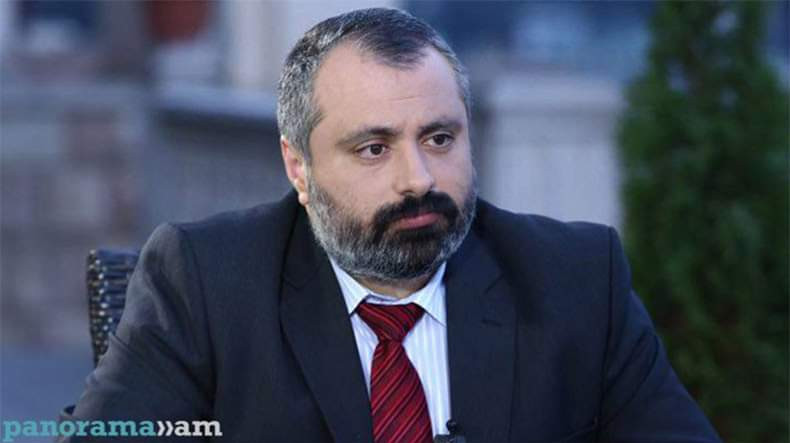
Artsakh FM: Armenia and Artsakh facing major water security challenges
The Azerbaijani authorities plan to change the bed of Tartar River, after which the Sarsang reservoir will dry up. Journalist Narine Kirakosyan sounded the alarm on social media on Friday, indicating Azerbaijan has deployed a large amount of engineering equipment at the river bed these days.
Panorama.am contacted Foreign Minister of Artsakh (Nagorno-Karabakh) David Babayan, who is the author of the book on the problem of water in the context of the Nagorno-Karabakh conflict settlement, for further comments on the issue.
"Any suspicious activity that Azerbaijan carries out around rivers must be immediately responded to and not left unanswered," Babayan said, referring to the report about the possible change of the bed of Tartar River.
“It is impossible to do this at the moment. Tartar is a powerful river with an annual flow of about 700 million cubic meters. To change the riverbed, it is necessary to carry out large-scale construction work. There are two ways to change the riverbed: they can either change the riverbed to Araks in the Kashatagh region, where it has to pass through the Lachin corridor, and only then use water, or bring water into Gandzak through the Mrav mountain pass and tunnels. But this requires large resources and spending,” Babayan said.
As for the equipment spotted near the bed of Tartar River, Babayan said it could have been deployed there to resolve problems with the water supply rather than to change the bed.
In any case, it is noteworthy that the Sarsang reservoir is fed only by Tartar River and the reservoir is used by the people of Artsakh. This means that the population of Artsakh is facing a great risk.
“The blow will be heavy if they decide to poison Sarsang,” the minister said.
In Babayan’s words, Azerbaijan will not abandon its water geopolitics and will try to coerce Armenia into making various concessions by threatening to poison the river.
“Armenia's water security is also under serious threat. The sources of Arpa and Vorotan Rivers, which feed Lake Sevan, are located in Karvachar, which is now under the control of Azerbaijan, not Artsakh. A rather difficult situation has emerged. At one time, we fully ensured the water security in Armenia and Artsakh. Now we have become extremely vulnerable,” Babayan said.
Speaking about the possible steps to be taken to resolve the problem, the Artsakh foreign minister noted that the issue of water security can be resolved only in the political arena.
“The only way is the deployment of either Russian peacekeepers or a group of international observers including representatives of the Minsk Group co-chairing countries at the sources in some way to prevent the possible poisoning of the rivers. We have no other option, we must raise this issue unless we face a disaster,” Babayan said.
Newsfeed
Videos






























